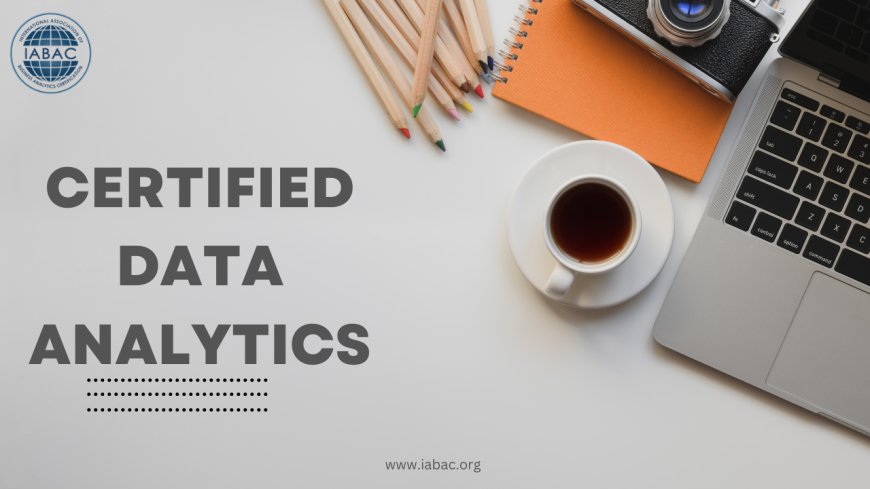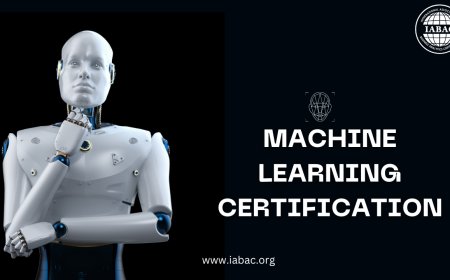Boosting Your Certified Data Analytics
Discover effective strategies to enhance your certified data analytics skills. Elevate proficiency and leverage advanced tools for business insights.

Data analytics is about examining large amounts of information to find patterns and insights that help businesses make better decisions. It’s becoming a crucial part of many industries, like healthcare, where it can help improve patient care, and finance, where it can detect fraud. In marketing, data analytics helps companies understand customer preferences, and in technology, it drives innovation and product development.
Getting a certification in data analytics is very useful. These programs teach you how to use software and techniques to analyze data and make sense of it. With a certification, you can show employers that you have the skills they need to turn data into valuable insights. This is important because more businesses rely on data to guide their actions and strategies. As a result, having a certification can lead to more job opportunities and help you stand out in the competitive job market.
Understanding Certified Data Analytics
Certified data analytics involves earning a credential that proves you have learned how to analyze data effectively. These certifications teach you how to use various tools and methods to find useful patterns and insights in data.
Some common certifications include:
-
Google Data Analytics: Focuses on the basics of data analysis, including cleaning and visualizing data using tools like spreadsheets and SQL.
-
IBM Data Analyst: Covers a range of skills, from data preparation to analysis, using tools like Python and Excel.
-
SAS Certified Data Scientist: Focuses on advanced data analysis and statistical modeling using SAS software.
Being certified in data analytics has many benefits. It shows employers that you have the skills to work with data and draw meaningful insights. This can help you find jobs more easily and potentially earn a higher salary. Certifications also keep your skills up to date, which is important as technology and methods evolve.
Impact of Certification on Career Growth
Certifications in data analytics can greatly improve your job prospects and boost your credibility. They show that you have the skills needed to understand and work with data. This makes you more attractive to employers, especially in fields that rely heavily on data. With a certification, it’s easier to stand out and get roles in industries like finance, healthcare, marketing, and technology, where data-driven decisions are crucial.
Many industries prefer hiring certified data professionals. For example, banks often look for analysts to help them understand financial trends, while healthcare providers need experts to analyze patient data and improve care. There are many success stories, like a data analyst who got a Google Data Analytics certification and then landed a job at a top tech company. Another person with an IBM Data Analyst certification found a better-paying job in retail, where they use data to understand customer behavior and boost sales.
Key Skills Developed Through Certification
These skills help turn raw data into useful insights that can improve how businesses operate.
-
Data Visualization: You learn how to make charts and graphs to show data clearly. This helps explain important information, like showing a team how sales are doing through easy-to-read visuals.
-
Statistical Analysis: You understand how to use numbers to find patterns in data. This is useful for jobs where you need to figure out trends, like understanding customer behavior in marketing or assessing risks in finance.
-
Machine Learning Basics: You get a basic idea of how computers can learn from data to make predictions. This can help in jobs where you need to forecast trends, like predicting what products customers might buy next.
-
Data Cleaning and Preparation: You learn how to organize and clean data so it’s ready for use. This is important in any data job because accurate data leads to better decisions.
-
Using Analytics Tools: You become skilled in using tools like Excel, SQL, Python, and R to handle and analyze data. These tools are used in many jobs, from keeping track of sales data in retail to managing information in IT.
These skills are used in everyday work. Data visualization helps show complex data in simple ways, making it easier for teams to understand and act on it. Statistical analysis helps identify trends that guide business decisions. Machine learning basics allow you to build models that predict future events based on past data.
How to Prepare for a Data Analytics Certification
There are some essential steps for the preparation of Data Analytics Certification:-
1. Choosing the Right Program: To get ready for a data analytics certification, first, pick the right program for your goals. Think about the type of job you want. If you’re interested in finance, choose a certification that focuses on financial data. Look at reviews and ask friends or colleagues for their advice.
2. Study Resources: Next, gather some good study materials. Books like "Data Science for Business" or "Python for Data Analysis" can be very helpful. Try taking practice exams too; they can help you understand the test format and show you which areas need more attention.
3. Managing Your Time: Managing your time is crucial. Make a study plan that fits into your daily routine. Set aside specific times each day for studying, even if it’s just for short sessions. Take regular breaks to keep your mind fresh. Using a planner or a calendar can help you keep track of your study schedule and stay organized.
By picking the right program, using good study resources, and managing your time well, you can prepare for your data analytics certification and balance it with your other activities.
Leveraging Your Certification to Boost Your Career
To make the most of your data analytics certification, start by showcasing it on your resume and LinkedIn profile. Highlight it in the skills section and describe how it enhances your abilities. Mention specific tools and techniques you’ve learned, like data visualization, statistical analysis, or using Python.
Apply your new skills to your current job by taking on projects where you can use data analytics. Offer to analyze data for ongoing projects or suggest new ways to use data to solve problems. This shows your employer how valuable your new skills are.
Join professional communities and attend networking events for data analysts. This can connect you with others in your field, opening up new opportunities and allowing you to share experiences. Online groups on platforms like LinkedIn and attending industry meetups can help you build these connections and learn from others in the industry.
Staying Updated in the Field of Data Analytics
In data analytics, it’s important to keep learning because the field changes quickly. Here’s how you can stay updated:
1. Keep Learning New Skills: Technology is always evolving, so you need to keep up. Take advanced courses or get certifications in areas like machine learning or big data. For example, you could get certifications like SAS Certified Data Scientist or Microsoft Certified: Azure Data Scientist Associate. These help you learn more and become better at your job.
2. Read and Follow Trends: Stay informed about the latest trends and technologies in data analytics. Read articles and blogs about new developments in artificial intelligence (AI) and machine learning (ML). Websites like Data Science Central or blogs from big companies like IBM and Google are good places to find this information.
3. Take Courses and Join Events: Online courses, webinars, and conferences are great for learning new things. They can teach you about the latest tools and methods in data analytics. Attending these can keep your skills sharp and up-to-date.
4. Network with Other Analysts: Join professional groups or online forums where data analysts share their experiences. Networking with others in your field helps you learn from their experiences and stay connected to what’s new in data analytics.
By continuously learning and staying engaged with the latest trends and communities, you'll be ready to handle new challenges in the fast-changing world of data analytics.
Boosting your data analytics skills with certification is essential for staying competitive in today’s job market. It not only helps you learn new techniques and tools but also shows employers that you are committed to growing your expertise. If you want to advance your career, taking the step to get certified can open up many opportunities. So, leap and enroll in a data analytics certification program today. Start your journey to becoming a more skilled and valuable professional in the field of data analytics.











































